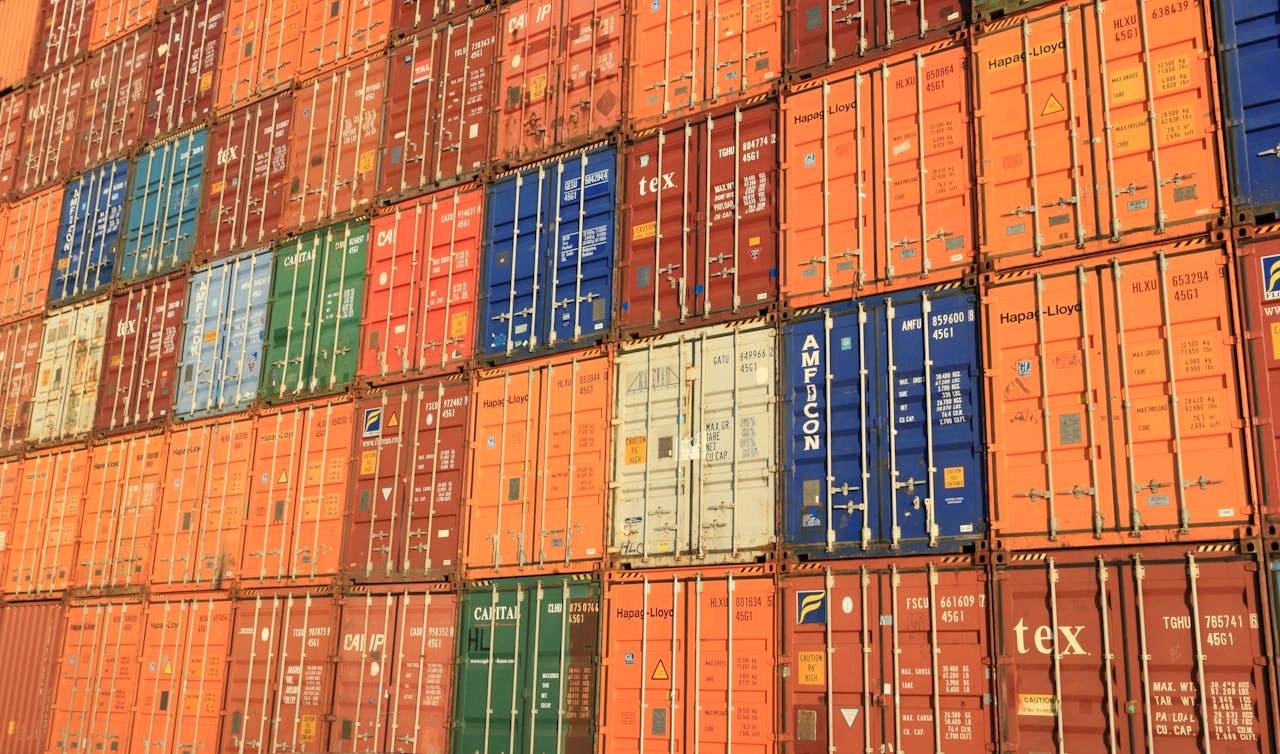Key Takeaways
• AT3 gathered nearly 70 experts in Athens on May 14, 2025, to discuss air travel forecasting challenges.
• Airspace limitations, geopolitical changes, and air cargo growth are highlighted as major bottlenecks and planning challenges.
• Artificial intelligence is increasingly used to process complex data and improve airport and airline forecasting models.
The Airport Traffic Think Tank, known as AT3, brought together almost 70 experts in Athens on May 14, 2025, to face one of the biggest questions in air travel: how can airports and airlines make smart plans for the future when so much is uncertain? These specialists—among them, air traffic forecasters, planners, and business leaders from airports in Europe, Asia-Pacific, North America, Latin America, and the Middle East—met to share what they know about current challenges, fresh trends, and new ideas that could change how people travel and how things are shipped by air.
Their discussions showed just how complex it has become to guess how many travelers and shipments will move through airports in the coming years. The meeting, as reported by VisaVerge.com, focused on several key issues, including airspace limitations, the effects of global politics, the rise in air cargo, and how artificial intelligence (AI) can help improve predictions.

Airspace Limitations: The Main Bottleneck
One of the biggest problems highlighted by the Airport Traffic Think Tank is airspace limitations. As more people want to fly and more goods are shipped by air each year, the actual space where planes can safely fly becomes crowded. This “airspace” is the sky divided into sections controlled and monitored by air traffic controllers. When this space fills up or can’t be expanded quickly enough, it limits how many flights can land or take off from an airport, no matter how big the terminals or how many runways exist on the ground.
• Airspace limitations mean airports could become unable to meet the growing desire to travel.
• Airlines may have to delay flights or cut down the number of flights if the airspace is full.
• These limits also make it hard to plan for the future, as planners can’t always predict when new airspace will open up or how rules might change.
Athens itself faces these types of issues, as its main airport, Eleftherios Venizelos, continues to see strong passenger growth. For instance, Athens Airport reported a 9% rise in passenger numbers in April 2025, indicating not only the strength of demand but also the pressure on both infrastructure and airspace.
Airspace limitations impact everything from how flights are scheduled to how many staff are needed in air traffic control towers, affecting workers, travelers, and airlines alike.
Geopolitical Shifts: A Constant Source of Surprise
Another big topic was how global politics keeps changing—and how these changes can quickly alter who flies where and when. Travel forecasters have to keep an eye on:
• Ongoing or sudden political conflicts, which can close certain air routes or entire regions.
• Changes to trade rules, which can affect not just passenger flights but also cargo volumes as companies find new suppliers or customers.
• New government policies, such as visa rules or travel advisories, which can slow or boost travel demand overnight.
These issues mean planning ahead is much harder now than even five years ago. One delegate at the Athens meeting said, “Forecasting is a complex and continuous task… critical parameters such as economic growth rates or fuel costs can shift unexpectedly due to events like natural disasters or new airline business models.”
Air Cargo Growth: More Goods in the Sky
The Airport Traffic Think Tank also examined the sharp rise in air cargo. As world trade grows, more goods are shipped by plane, from electronics to fresh food and medicine. This rise in cargo:
• Brings more money to airports, which often depend on both passengers and cargo operations.
• Calls for new types of forecasts that include not just the number of travelers but also the volume of goods being shipped.
• Puts pressure on airport infrastructure, such as cargo terminals and storage facilities, increasing the need for investment.
With the world expecting to move 9.9 billion passengers through airports in 2025, according to participant forecasts, the amount of freight is also rising fast. Athens and other cities need to think about how to handle bigger planes, more flights, and larger storage areas for cargo—while still keeping the flow of passengers smooth.
Using Artificial Intelligence to Sharpen Predictions
Perhaps the most future-focused topic discussed in Athens was the use of artificial intelligence in forecasting airport traffic. AI, which is a form of computer technology that can recognize patterns and learn from new information, has become a tool many experts now rely on. Here’s why:
• AI can process enormous amounts of data more quickly and accurately than a team of human analysts.
• It can spot trends that a person might miss, such as patterns in booking data or cargo shipments that suggest changes in travel demand.
• AI can be adjusted as new events happen, helping forecasters make faster and better decisions.
At the Airport Traffic Think Tank, delegates explored how AI could help overcome the challenges caused by airspace limitations, fast-changing trade patterns, and sudden rule changes. By using AI, airports and airlines hope to make their long-term plans less vulnerable to surprises, such as sudden drops or increases in travel.
Regional Insights: Athens and Beyond
The meeting in Athens also featured updates from different regions. Mr. Philip Kwok of ACI Asia-Pacific & Middle East gave a presentation on traffic growth in these fast-growing areas. He shared that:
• Passenger numbers in Asia-Pacific and the Middle East are rising at a fast rate.
• Airports there need bigger and better facilities to keep up with travelers’ needs.
• Working together across different parts of the industry—governments, airlines, and airport operators—is key to keeping things running well during both good and bad times.
These comments ring true not just for Athens, which remains a busy gateway for Southern Europe, but for airports everywhere. As more countries work to boost travel and invest in new infrastructure, the need for robust forecasting—using the latest tools and data sources—becomes stronger.
The Industry’s Wider Setting: More Planes, But Not Without Problems
The Athens meeting of the Airport Traffic Think Tank took place at a time when airline capacity is returning to or even surpassing what it was before the COVID-19 pandemic. But this recovery is not without hurdles. Experts discussed how:
• Airlines face delays getting new airplanes because of ongoing supply chain issues.
• Rising costs for energy and staff force airports and airlines to make tough choices, sometimes limiting growth.
• Even as more people want to fly, so much can change at short notice, from a sudden political crisis to a new virus.
All these factors make it tough to stick to traditional ways of predicting travel demand. In the past, experts often used “linear” models, which assume things will continue as they have in the past. But the Athens delegates agreed that such forecasts often break down in the real world, as so many different things can change at once.
Why Good Forecasts Matter
Why do these predictions matter so much? Accurate forecasts shape almost every decision an airport or airline makes, including:
• How many staff to hire—from pilots to security teams
• When and how to invest in new runways, terminals, or cargo warehouses
• How to plan for emergency events, such as weather disruptions or sudden policy changes
For travelers, accurate predictions help ensure they can book tickets at fair prices and expect reliable service. For businesses, it means fewer surprises that lead to lost money or unhappy customers.
New Forecasting Tools: Scenario Planning and Continuous Updates
One of the main ideas put forward at the Airport Traffic Think Tank is that planning must now be more flexible. Instead of relying on one main forecast, experts suggest creating several “scenarios.” These scenarios can show what might happen under different conditions, such as a sudden drop in global trade, a new airline entering the market, or new limits imposed due to airspace limitations.
• Scenario planning helps airports prepare for many possible outcomes.
• It encourages quicker responses to surprises.
• It makes investments in new infrastructure less risky, as different “what ifs” have already been considered.
The move toward continuous updates—using live data from bookings, weather, and airspace updates—means that airports can change their plans much more quickly than before. AI and advanced computer programs are key tools in making this possible.
For more details about how airspace limitations and traffic challenges are tracked, readers can review official statements from Airports Council International (ACI).
How Athens Sets the Example
Athens, chosen as the host for this year’s Airport Traffic Think Tank, stands as a strong example of both the challenges and hopes in today’s airport industry. With traveler numbers at the city’s main airport rising year after year, Athens must address the same issues discussed by the think tank, including growing demand and limited airspace. The city’s experience underlines the need for smart planning, rapid adaptation, and strong partnerships between airports, government agencies, and airlines.
Recent data shows that Athens Airport’s passenger traffic climbed by 9% in April 2025 alone, as reported in official statistics. These rising numbers create pressure to expand services while also making sure safety and efficiency do not waver. The city, much like other busy air travel hubs, faces choices about expanding terminals versus improving how existing spaces and flight paths are used, especially with airspace limitations in play.
Looking Forward: Adapting to a World That’s Always Changing
Participants at the Airport Traffic Think Tank agreed that uncertainty is now a regular part of the world they work in. Whether it is new technology, shifting politics, sudden demand spikes, or airspace limitations, the old ways of making predictions do not work as well as they once did. They stressed the importance of:
• Embracing new tools like AI to process data quickly and find new patterns.
• Working together across countries and regions to share ideas and solutions.
• Preparing for surprises rather than simply hoping things will stay the same.
This new attitude means airports must be ready to build more capacity if needed, but also stay resilient if challenges arise—be it a shortage of staff, crowded airspace, or unexpected world events.
The Impact for Travelers, Workers, and Airlines
What does all this mean for the people involved? For travelers, better forecasts mean less waiting, fewer surprises, and more choices when booking trips. For workers in airports and airlines, smart planning leads to stable jobs and safer working conditions. For airlines, a clear view of future demand and airspace limitations helps avoid wasted money on flights that may never take off.
As the world continues to change quickly, the lessons from the Athens meeting are clear: it pays to be ready for anything. Accurate forecasts that consider airspace limitations, trade changes, and new technologies are not just helpful—they are now essential. As the Airport Traffic Think Tank and Athens both show, airports that adapt quickly and plan with both caution and creativity will have the best chance to succeed.
Key Takeaways
The Airport Traffic Think Tank’s meeting in Athens has reminded everyone in the industry that:
• Airspace limitations will continue to be a main challenge as more people fly and more goods are shipped by air.
• Planning for growth now needs smart tools like AI, along with closer teamwork between governments, airports, and airlines.
• Preparing for surprises—rather than pretending they won’t happen—means airports can stay strong, even in uncertain times.
For those wanting the latest industry updates, or considering how these trends could affect future travel or investment decisions, ongoing coverage from sources such as VisaVerge.com and official authorities will remain important.
The aviation world is moving fast, and as the events in Athens show, those who keep learning, updating their plans, and embracing both technology and teamwork will be in the best position to help travelers, businesses, and communities around the globe thrive.
Learn Today
Airspace Limitations → Restrictions on the amount and routes of air traffic due to the finite sections of sky controlled by air traffic controllers.
Artificial Intelligence (AI) → Computer technology that recognizes data patterns, learns from information, and is increasingly used to forecast airport and airline traffic.
Scenario Planning → A strategic method using multiple hypothetical situations to help airports and airlines prepare for a range of possible futures.
Cargo Operations → Management and movement of goods shipped by air, requiring specialized airport infrastructure, separate from passenger services.
Geopolitical Shifts → Changes in global politics, conflicts, or government policies that can suddenly alter travel patterns and air routes.
This Article in a Nutshell
The Airport Traffic Think Tank (AT3) convened experts in Athens to address challenges in forecasting air travel. Major topics included airspace limitations, unpredictable geopolitical events, and the rise of air cargo. AI-driven tools now assist in rapid scenario planning, helping airports and airlines remain agile and resilient amid continued industry uncertainty.
— By VisaVerge.com
Read more:
• Airlines pull financial forecasts as trade war deepens industry uncertainty
• IRCC Forecasts Work and Study Permit Holder Departures
• Alliance Aviation Slashes Profit Guidance for FY25
• U.S. tourism faces sharp inbound travel decline in 2025
• WestJet launches new seasonal flights to Tulum from Canada













